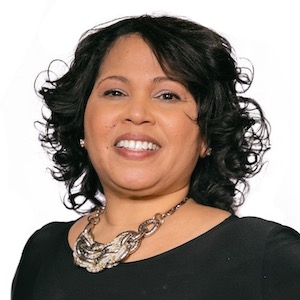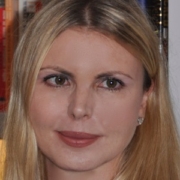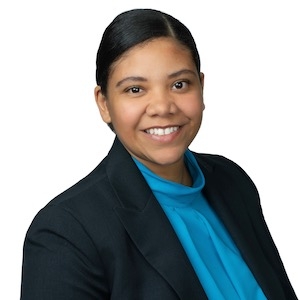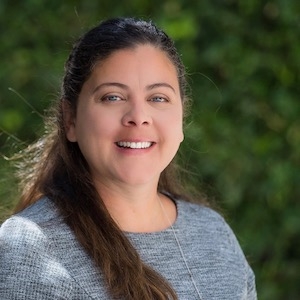Gia Morón, CEO, GVM Communications, Inc & President, Women Grow
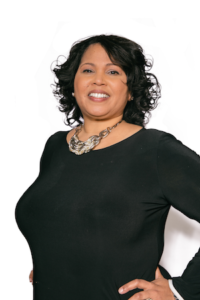 From entertainment to Wall Street to PR entrepreneurship, Gia Morón has repeatedly found herself in spaces she never imagined.
From entertainment to Wall Street to PR entrepreneurship, Gia Morón has repeatedly found herself in spaces she never imagined.
With a gift for drawing connections and a super keen gut instinct, she’s now at the forefront of women leaders driving diversity in the emerging cannabis industry.
Different Industry, Similar Skills
As Director of Promotions and Publicity for an entertainment firm in her 20s, Morón cultivated a passion for telling stories. When one day she was laid off, a staffing company suggested a curveball.
“There wasn’t an inkling within me that would’ve thought that I would be on Wall Street,” she says, having barely paid attention to the stock market. “I was thinking how different could this be? Only to learn that the same skill set still applied, just in a different industry.”
As Media Relations Officer at Goldman Sachs, she found that finance was as much about storytelling as entertainment was. She also soon realized that everything – including the entertainment world – came back to the hub of finance.
“I thought it was only a stepping stone,” she says. “But I don’t think school could’ve taught me what I learned on Wall Street.”
Becoming an Entrepreneur
“Oftentimes when we’re in the middle of something,” says Morón, “we have no idea what we’re being prepared for next.”
Morón worked with the 10,000 Women initiative at Goldman Sachs, which also launched 10,000 Small Businesses. So when the 2011 downsizing ended her 15 year stint there, she started her own public relations, brand and business development firm to try out similar consulting, this time on her own.
“I said let me take the time to do this now,” she remembers, “rather than regret not doing it. If it doesn’t work, I can always go back.”
Morón launched GVM Communications, Inc on April 20th, 2012, a date (4/20) that, in retrospect, seems auspicious.
“I wanted to try something different, but I went back to something I was familiar with,” she comments, on initially taking on finance and tech affiliated companies as her client base. “And I thought to myself, I’ve got to fire myself and really go into something entirely different.”
So she began to amass clients from fashion to plastic surgery, which she now sees as preparing her for the next development, which sparked when she started noticing a documentary series on legal marijuana on CNBC around 2013.
The Story Didn’t Add Up
“I am thinking this is prime time and they are focused on marijuana on a financial network,” Morón recalls. “There’s something I need to pay attention to. And that (intuition) I attribute to Wall Street, where you learn about forecasts.”
What also piqued Morón’s intrigue was that all the interviewees for these businesses were white men, whereas people of color from her old neighborhood were being arrested for the same thing that was now becoming legal, and lucrative.
“There’s a changing of the tide that really is only showing the success of a white male community, but continues to show the disproportionate civil injustices against Black and brown people,” she observed. “Well, that didn’t make sense to me.”
Stepping Into the Room
After discovering Women Grow in a magazine she was cover-pitching for a client, Morón apprehensively attended her first meeting, just off Canal Street in New York City.
She was surprised to find a very friendly room of people dressed in blazers with an atmosphere akin to an afterwork social networking gathering, but only five Black people present.
“I thought you could pick this room up and put it anywhere in the country, but you’d never know you were in NYC based on the lack of diversity,” says Morón. “And we’re talking about marijuana, right? Why shouldn’t there be a whole plethora of diverse faces in the room?”
“I walked up to every single Black person with a smile on my face, the five in the room, and I was very direct. I said, ‘Hi Black person, my name is Gia’,” says Morón. “I wanted them to know I see us in this room, and I recognize that it is important for us to acknowledge each other.”
She would then suggest they get to know the room, and regroup. This strategy worked and for the next meeting, she and the others brought ten more interested people of color.
“I think you can approach a situation like that and feel like you’re the only one,” she says, “or you can say, ‘I can invite other people and not be the only one.’”
She realized from the meeting that her PR skills were needed in the cannabis industry, and began to bring in new clients in 2015 to her GVM portfolio.
“That is when I learned that whatever people were currently doing in their jobs or their businesses could be applied in the cannabis industry,” says Morón, attributing her vision again to her time in finance. “And once that light went on, I recognized that cannabis would eventually make its way into every industry that operates today.”
Forging Diversity In an Emerging Industry
For Morón, Women Grow is the “gateway” into the cannabis industry for women, a network of diverse women bonded by the common mission of becoming leaders in this emerging industry.
“Oftentimes we come into a new space with old practices looking for different results that cannot happen unless we become intentional and conscious about what we need to change,” she observes.
Her organization has repeatedly witnessed the need to challenge and disrupt the familiar bastions that uphold the white men’s club – such as disproportionate access to licensing and capital – amidst the major obstacles of no federal legality, regulation or banking system.
Women represent 27% of cannabis leadership so far, ahead of other industries, and this is a direct result of intentional action to correct the course, now. Still Morón says more work needs to be done to see further leadership of women in the industry.
A new partnership with the Arcview Group’ Women’s Investment Network (“WIN”) will focus on educating, deal flow and networking around investment.
Creating a Legacy of Leadership
Alongside brilliant colleagues she admires and feels bolstered by, Morón has forged inclusion not only in the industry, but also at Women Grow.
“White women often see diversity as gender first. Whereas women of color see diversity as cultural first, then gender,” she discerns. “I didn’t recognize that until I was having these amazing conversations with women across the industry.”
Morón talks about releasing the fear and judgment that arose as she ventured into cannabis, and how every stereotype that could come up has been blown apart. She said the biggest misconception most people have is that they must consume cannabis in order to be in the industry, which is not the case. Learning about the plant and regulations that vary from state to state about the industry is most important.
“My gut feeling kept telling me over and over, you’re on the right path,” she says. “I had to recognize every time I trusted my gut, it didn’t fail me. I’ve experienced small fails, but not complete failures.”
“I am so proud to actually be in an industry where I find people who look like me – women and people of color, coming together, having the backgrounds we have, doing the work we are doing, and I get to say this is my network of people,” Morón beams. “We are literally part of the bricklayers of building this industry.”
“Our ancestors or people from our communities have paid the price,” she says. “And now our responsibility is to execute and make a positive impact. We believe in an industry where we can thrive, and not just survive, but moreover really create legacies for our own families and communities.”
by Aimee Hansen

